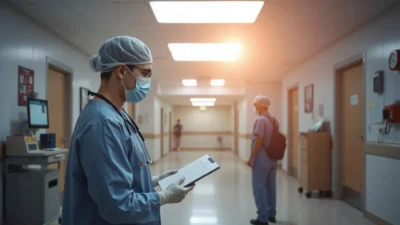Introduction: Exploring the Unique Role of Forensic Nurses
Forensic nurses represent a vital but often underrecognized sector within the healthcare profession. Blending clinical nursing expertise with forensic science and criminal investigation, forensic nurses play a pivotal role in both medical and legal contexts. The role of forensic nurses encompasses patient care, evidence collection, and court testimony, particularly in cases involving violence, abuse, or unexplained death. As society continues to recognize the importance of trauma-informed care and justice for victims, the relevance of forensic nurses is growing rapidly in hospitals, law enforcement agencies, and legal institutions alike.
In this career spotlight, we explore the distinct responsibilities, educational paths, skills, and challenges that define the unique role of forensic nurses. This exploration not only illuminates a fascinating field but also highlights the profound impact these professionals make in individual lives and society as a whole.
The Evolution and Definition of Forensic Nursing
What is Forensic Nursing?
Forensic nursing is a specialized field that integrates nursing practice with forensic science to serve individuals affected by violence, trauma, and abuse. These professionals assess and treat victims while also collecting evidence that can be crucial in criminal investigations. The term “forensic” relates to the application of scientific methods and techniques to crime and law, positioning forensic nurses uniquely between the realms of healthcare and criminal justice.
Coined by Virginia Lynch in the 1990s, forensic nursing has since evolved into a recognized discipline with certifications, graduate programs, and institutional support. Today, forensic nurses work in a variety of settings, including hospitals, sexual assault response centers, correctional facilities, and disaster zones.
Core Responsibilities of Forensic Nurses
Clinical Care for Victims of Trauma
Forensic nurses are first and foremost caregivers. They are trained to provide comprehensive care to victims of sexual assault, domestic violence, elder abuse, child abuse, and other traumatic events. This care often includes:
Evidence Collection and Preservation
A critical component of forensic nursing is the accurate and sensitive collection of evidence. Forensic nurses are trained in techniques that minimize contamination and maintain the chain of custody. Key tasks include:
Legal Documentation and Testimony
Specialists in forensic nursing frequently appear in court as expert witnesses. Their documentation and testimony can play a decisive role in criminal proceedings. Their ability to interpret medical findings, remain objective, and communicate clearly under legal scrutiny is essential.
Specialized Roles Within Forensic Nursing
Forensic nursing encompasses several sub-specialties, each with unique responsibilities and training pathways. Below are some of the most prominent roles.
1. Sexual Assault Nurse Examiners (SANEs)
SANE nurses specialize in the care of sexual assault survivors. They conduct forensic exams, collect evidence, and offer compassionate, non-judgmental support. SANEs play a crucial role in linking victims to legal resources and counseling services.
2. Legal Nurse Consultants
These professionals use their clinical expertise to advise legal teams in medical-related cases. They may analyze medical records, provide expert opinions, or assist in preparing witnesses for trial.
3. Correctional Nurses
Working within jails or prisons, correctional forensic nurses address the health needs of incarcerated populations while identifying and documenting signs of abuse or neglect.
4. Nurse Death Investigators
Also known as forensic nurse death investigators, these nurses collaborate with coroners or medical examiners to determine causes of death in suspicious or unattended fatalities.
5. Psychiatric Forensic Nurses
These specialists work with individuals who have experienced or perpetrated violence and who are involved with the criminal justice system. Their responsibilities may include assessment, therapy, and risk evaluation.
Basic Requirements
To enter the field, one must first become a registered nurse (RN) by earning an Associate Degree in Nursing (ADN) or a Bachelor of Science in Nursing (BSN), followed by passing the NCLEX-RN exam.
Advanced Education and Training
Many forensic nurses pursue advanced degrees such as:
Certification
Certifications add credibility and specialized competence. Examples include:
Skills and Competencies of Forensic Nurses
Being a forensic nurse requires a distinct blend of clinical expertise and legal acumen. Essential skills include:
These competencies enable forensic nurses to navigate high-stakes environments and make informed decisions that affect both health outcomes and legal processes.
Where Forensic Nurses Work
The work environments for professionals in forensic nursing are diverse and often fast-paced.
Some practitioners in this field may also work independently as consultants or expert witnesses.
Forensic Nursing and Public Health
The impact of specialists in forensic nursing extends beyond individual patients to the broader public health landscape. They:
These practitioners often serve as the first line of defense against ongoing violence, helping to interrupt cycles of abuse and address underlying causes.
Challenges Faced by Forensic Nurses
Despite the rewards of the profession, forensic nurses encounter several challenges:
Emotional and Psychological Toll
Repeated exposure to traumatic stories and graphic injuries can lead to compassion fatigue or secondary traumatic stress. Support systems and mental health resources are essential for longevity in the field.
Legal Complexity
Navigating the intersection of healthcare and the justice system requires constant education and legal awareness. Mistakes in documentation or evidence handling can have serious consequences.
Lack of Recognition
In many regions, forensic nursing is still emerging and may lack institutional support, standardized procedures, or sufficient staffing.
Future Outlook and Demand for Forensic Nurses
The demand for professionals in forensic nursing is increasing as awareness grows around issues such as sexual violence, elder abuse, and human trafficking. In addition, courts and healthcare systems are recognizing the importance of having trained specialists who understand both patient care and legal standards.
Emerging trends include:
How to Begin a Career as a Forensic Nurse
Step-by-Step Guide
Conclusion: Why Forensic Nurses Matter
The role of forensic nurses is both unique and indispensable. These professionals serve as a bridge between healing and justice, offering compassionate care to victims while playing a pivotal role in legal investigations. Their expertise not only aids in medical recovery but also supports the pursuit of justice and societal well-being.
For those drawn to a career that blends science, advocacy, and emotional resilience, forensic nursing offers a deeply meaningful and impactful path.



